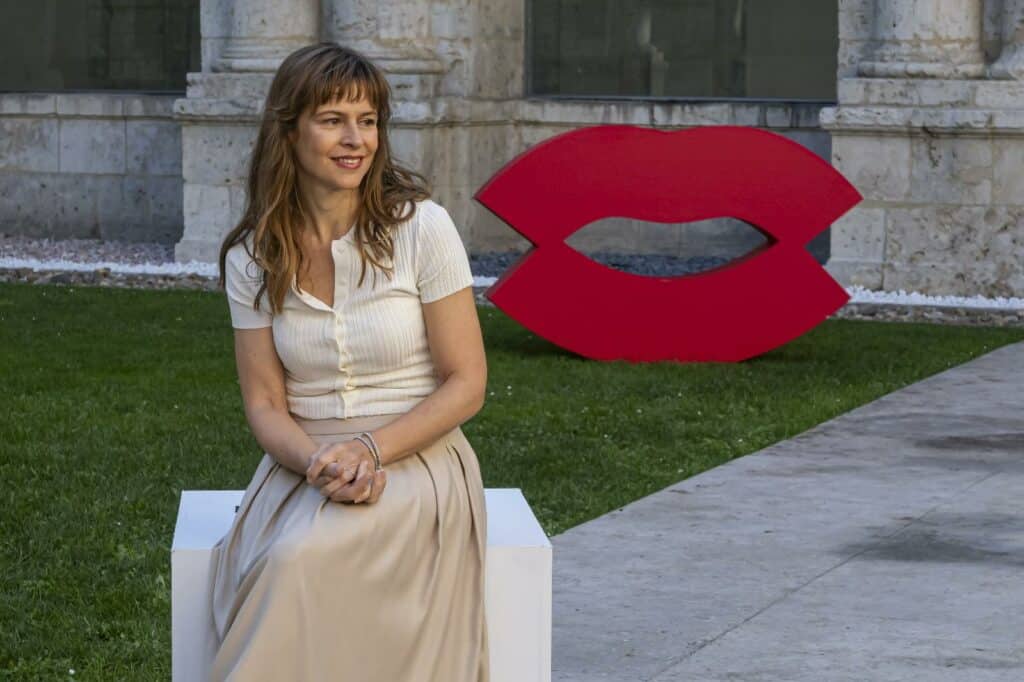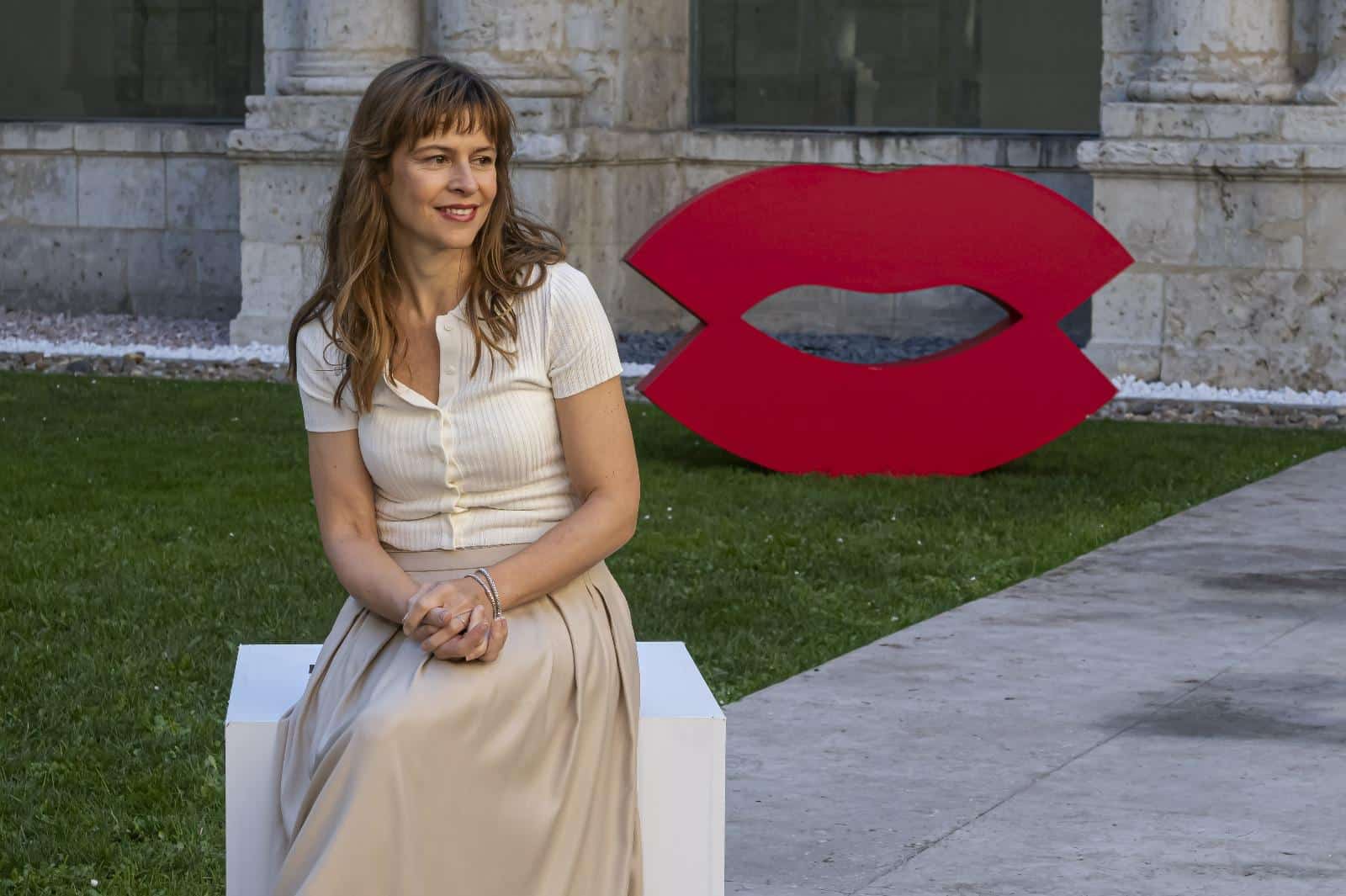- Maura Delpero competes for the Golden Spike with a poetic story that travels to the remote mountains of northern Italy at the end of the Second World War.
Valladolid, 22 October 2024. Italian filmmaker Maura Delpero has arrived at the 69th Valladolid International Film Festival (SEMINCI) to present in competition Vermiglio, a period drama set in 1944, in the remote village in the Italian Alps that gives the film its title. The idyllic life of the local village teacher and his large family is disrupted when a deserting soldier arrives in the village in search of a hiding place. This scenario is the backdrop against which he develops a web of relationships, reflecting through them on themes such as motherhood, patriarchy and the passage of time. Vermiglio is, in the words of Maura Delpero, ‘a journey in time and space’.
Regarding her motivation for making a period film, the director shared: ‘I had no exotic desire to look at a world and reconstruct it. I was afraid of falling into that, because what I wanted was to work on my own sensory experiences. And I was particularly interested in the last year of the war because I feel that there is a passage between the ancient and the modern. It is a past that still dialogues a lot with us, that seems very distant, but that can still show us things. He added: ‘It’s about reflecting on the past to understand where we are now and to look to the future.

Although Vermiglio takes place in a specific moment in history, it is possible to find a universality in his discourse. As Delpero has pointed out: ‘I was interested in the relationships between people, in what is human. It’s a film that’s crossed by marriages, parties, mourning… These are the themes of life. So it’s not a question connected exclusively to an era, it’s what touches us all as human beings. I’m interested in understanding who the individual is within a community, their limits within it, and how both things dialogue’.
It is also a work that focuses on the reality of women in this context. In the words of the director: ‘I didn’t want to impose a discourse that would break with historical accuracy; that would be incoherent. The female characters in the film are women of their time, who are under the decisions of a ‘pater familias’, with limited possibilities in life. But, at the same time, I feel that these are years in which there begins to be a desire for self-determination, a hidden sense of wanting to desire, obviously in some women more than others. The three sisters, Lucia, Ada and Flavia, represent that: the different ways of finding freedom, each in her own way’.
Her family’s village
On her connection to the village and her portrayal of the landscape, the director said: ‘It is a landscape of my childhood, of my family. In Italian, ‘vermiglio’ is a colour. But, for me, it is also the village where my father and all his family were born. It’s true that Vermiglio is a film of mountains. But having grown up there, I don’t see it as a postcard landscape, but as something that is integrated into the culture. I wanted to explore what a mountain being is like, what the people who live there are like, in the midst of this giant manifestation of nature, and how that influences the way they move through the world.’
For this reason, it was essential for Delpero to work with the villagers: ‘There is a mix of professional and non-professional actors. I wanted the children, teenagers and older people to be from there. I did a lot of interviews in the area, starting with my aunts and then with the people of the village. I didn’t use extras either, but went from bar to bar drinking wine and grappa with the old people of the village, asking them to play a part in the film. Working with professional actors was the opposite. The popular actor in Italy Tommaso Ragno, who plays the father, is a city man, so he had to learn the behaviours and movements of a mountain man’.
Finally, about her way of filming, where the fixed camera and static shots predominate, Delpero said: ‘I try to tell something in each image, that each shot has a depth. I had the idea of a work that was more pictorial than cinematographic. For me, what was important were the characters and the landscapes. I didn’t need fancy camera movements or a strong camera presence. I prefer to have few shots that lead me to a syncretic image, which tells many things at the same time’.
Press contact:
983 42 64 60
prensa@seminci.com



























![Logo Foro Cultural de Austria Madrid[1]](https://www.seminci.com/wp-content/uploads/2024/09/Logo-Foro-Cultural-de-Austria-Madrid1-300x76.jpg)








